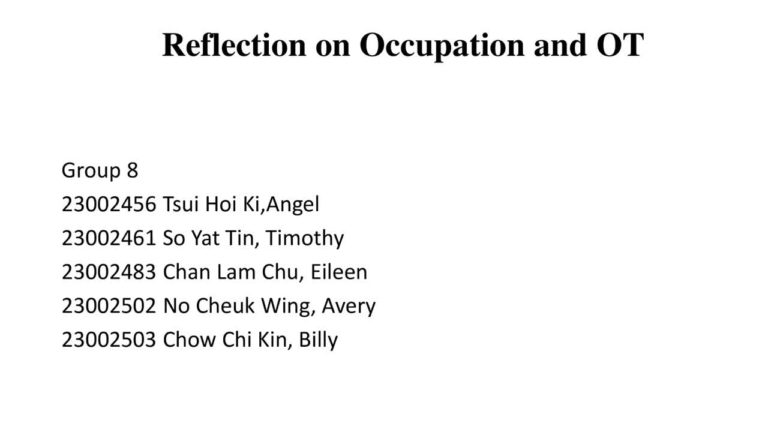OT plays an important role in contributing to both the community and health model in Hong Kong.
Firstly, OT promotes the concept of well-being in society. People in Hong Kong usually only focus on physical illness and overlook the importance of well-being. However, health is not just the absence of disease or infirmity but is a state of complete mental, physical, and social well-being (WHO, 2006). OT promote these concepts to the general public in Hong Kong by applying them during treatments. This helps individuals in the Hong Kong community put more emphasis on their quality of life, such as work-life balance and their occupation of play and leisure. In addition, a model of holistic approach is promoted in OT, where the PEO model that focuses on the occupation performance is applied (Law et al.,1996). Applying person and occupation to disabled community as an example, in terms of the ‘person’ factor, their personality, which is mental well-being, is considered; in term of ‘occupation’ factors, whether the activity of daily life such as getting up from bed, which is physical well-being, is analysed. OT present the importance of holism within communities such as disabled communities and raise the awareness of well-being to all communities in Hong Kong.
Moreover, OT shifts the focus to the clients themselves instead of their medical condition. A health model of client-centered practice is adopted in OT (AOTA,2020), where the uniqueness of the client is determined. Clients are not just patients with disease, they might have desires that are different from the medical prescription. Therefore, from the perspective of occupational therapy, individuals in the chronic illness community are considered experts by experience, and their opinions are highly valued in the Care and Treatment Review (NHS, 2017). Occupational therapists respect the clients, increasing the status of the chronic disease community and ensuring that their voices are listened to by society.
